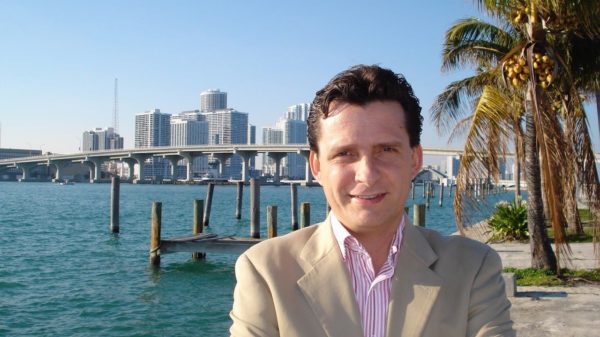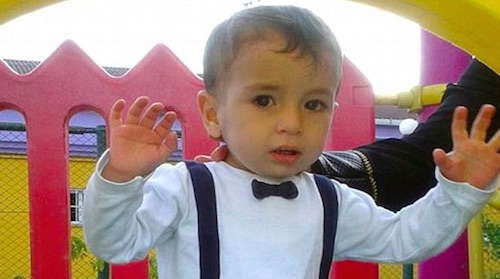Above: San Francisco District Attorney George Gascón and San Francisco Consul General of Mexico Gemi José González López at a press briefing announcing the signing of the agreement. (Credit: Anna Challet)
SAN FRANCISCO – The San Francisco district attorney’s office is sending a message to Mexican crime victims: regardless of their immigration status, they should feel safe reporting crimes to local law enforcement.
In renewal of an agreement initially signed five years ago, San Francisco District Attorney George Gascón and San Francisco Consul General of Mexico Gemi José González López signed a Memorandum of Understanding (MOU) this week that the D.A.’s office and the Mexican consulate will work together to protect and support crime victims and witnesses who come forward.
“Our immigrant community, especially those coming from Latin America, feel that they are under threat,” said Gascón at the signing of the MOU. “People are afraid to engage in civil society in unprecedented numbers.”
The focus of the agreement is to serve Mexican citizens here who are victims and witnesses of violent crime, domestic violence, sexual assault, and hate crimes.
While the agreement has been in effect for five years, the D.A.’s office wanted to “reaffirm the commitment” at a time when the nation’s president is “attacking the principles behind sanctuary cities.” As a sanctuary city, San Francisco limits the cooperation of local police with Immigration and Customs Enforcement (ICE) to implement federal immigration law.
Trump has threatened to withhold federal funding for cities that retain their sanctuary status.
“The circumstances today are very different than they were five years ago,” said Gascón. “[And] not only immigrants are running around scared in our nation today. Minorities, African Americans, Muslims, the people in our Jewish community are also being targeted.”
Gascón says the agreement is about public safety. If crime victims and witnesses don’t feel safe to come forward, “You have people committing crimes and they feel that they can do so with impunity. It will eventually harm people regardless of whether they’re here as immigrants or not.”
Reports of ICE detentions, including that of Daniela Vargas, a 22-year-old DACA recipient apprehended in Jackson, Mississippi continue to fan fears in communities around the country. Vargas, who came to the country at the age of 7 and had previously held a work permit and temporary reprieve from deportation, was detained after speaking to media about her family’s pending deportation.
Vargas is reportedly scheduled to be deported without a hearing.
Such instances highlight the concern within immigrant communities of making contact with authorities, even to report a crime, for fear of deportation.
“We feel very happy to sign this agreement again,” said Consul General González López. “When we know that a Mexican citizen living in the United States was a victim of a crime, a hate crime, a violent crime, or domestic violence, we will refer them to the D.A.’s office so that they can open a procedure and they can live in comfort and justice.”
González López says that while he hasn’t seen an uptick in hate crimes against Mexicans in San Francisco, the concern about hate comes as a response to a shift in attitudes toward Latinos nationally, with President Trump’s fear-mongering around immigrants who commit crimes and his repeated promise to build a wall on the Mexican border.
Gascón says that at the national level, FBI figures show that there has been an increase in hate crimes over the past several years. He also says that it’s important to remember that hate crimes are “one of the most underreported crimes.”
“Anytime that you’re dealing with vulnerable victims, that are fearful of being in contact with the authorities, you’re going to have a lot of underreporting. And when you’re talking about the immigrant community, what we’re seeing is people are increasingly fearful of coming forward because they don’t know what the consequences would be,” he said. “It takes years to create trust and you can break trust very quickly. The reality is that people are very fearful today.”
In response to the fear, San Francisco is also exploring the possibility of establishing a legal defense unit that would provide legal counsel to any and all immigrants detained. The city’s board of supervisors discussed a proposal to do just that Thursday, though questions of funding remain to be hashed out.
Still, González López sees reason for optimism. “This is a time to be a better friend of our American friends. We have had huge manifestations of solidarity” with immigrant communities recently, he says.
“California is a very special place,” he added. “This is a state of minorities. I do think that it would be a very good bet for the state to bet on minorities, to bet on migration, and to bet specifically on the Hispanic community, because the future of California is linked to that.”










